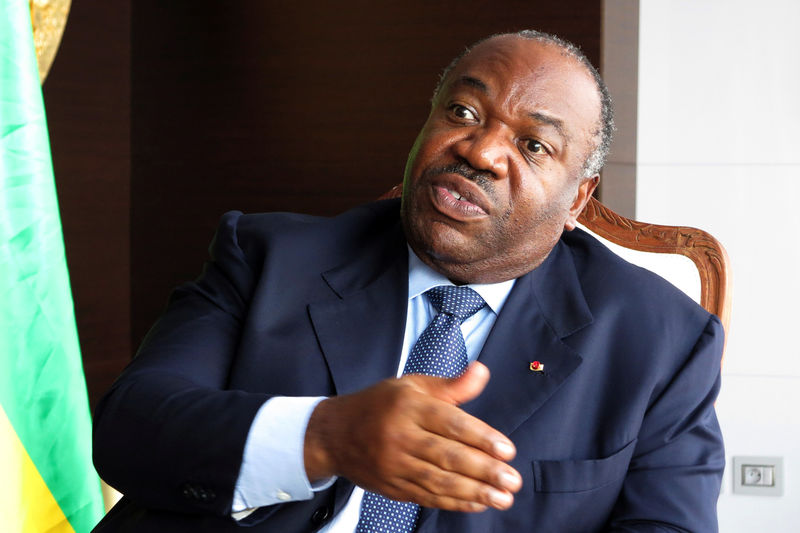By Duncan Miriri
KIGALI (Reuters) - Gabon expects its economy, which has been hit hard by the slide in world oil prices, to grow by 3 percent in 2016 and then pick up pace next year, its president told Reuters on Thursday.
Ali Bongo, who is seeking another seven years in office in August, told Reuters he would speed up measures to diversify the economy away from oil if he secured a second term.
Bongo, who won power in an election held after his father died in 2009, is expected to win the single-round electoral system that critics say favour the incumbent. But he has been grappling with a breakaway faction of the ruling party.
"This year is going to be difficult, I see more (like) 3 percent (growth) and next year we then go up again," he said in an interview on the sidelines of the World Economic Forum on Africa, which is being held in the Rwandan capital Kigali.
The president said growth had been running at an average of about 6 percent a year since he took office in 2009.
"In the second term, I will be able to accelerate reforms," he said, adding that oil now accounted for about 60 percent of gross domestic product compared with 80 percent in 2009.
The IMF said in March that it expected Gabon's economy to grow 3.2 percent this year and then possibly as fast as 5 percent in 2017 and 2018 if it invests in agricultural, particularly in cash crops such as palm oil and rubber.
Gabon cut spending by 14 percent last year due to falling oil prices and lower output. Ratings agency Moody’s downgraded its debt, while Fitch and Moody’s gave it a negative outlook.
"It is difficult for every oil-producing country, but we started ... the programme of diversification of our economy," he said. "We are still a long way from what we want to achieve, that is why we are asking the Gabonese people to support me."
Gabon was building a manufacturing industry for wood products instead of only exporting the raw commodity from its forests and was developing the mining industry by producing manganese, he said.
Bongo said the government was also distributing swathes of land - 200,000 hectares at first with a further 500,000 hectares in a second phase - in a bid to boost agricultural produce and cut reliance on food imports, which now account for 80 percent of its needs.
A hub to produce petrochemicals was being developed at Port Gentil, he added. "We are studying right now about the potential for a refinery," he said.
Dissidents complain of dysfunction in Bongo's Gabonese Democratic Party (PDG) and accuse him of mismanaging the nation of 1.7 million people that lies on Africa's west coast.

He dismissed accusations that he had risen to power on the back of his father's position, saying: "I did not inherit that seat. I had to fight for it."